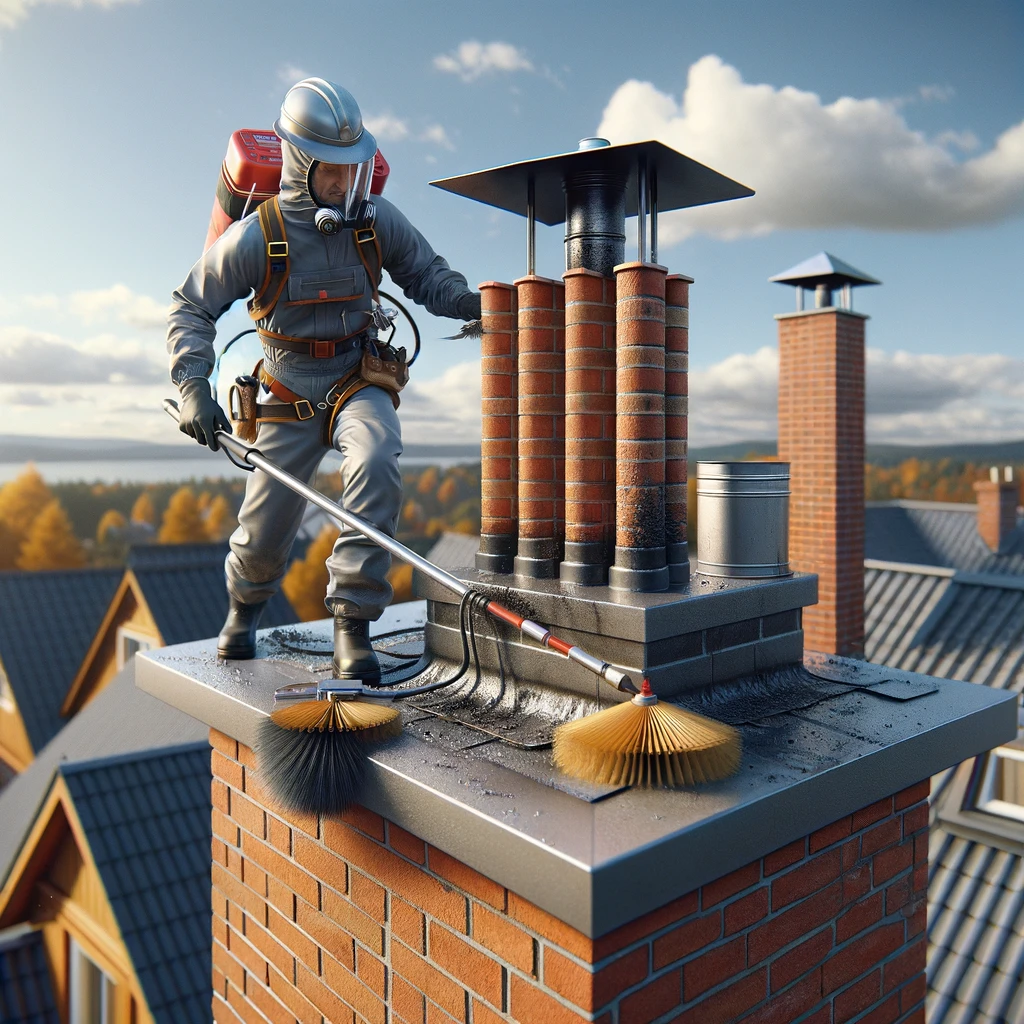
As the seasons change and the colder months approach, many homeowners begin to think about the efficiency and safety of their heating systems. One critical component of maintaining a safe and efficient home heating system is the care and upkeep of the chimney. A common question that arises is whether it’s necessary to have the chimney cleaned annually. This article explores the importance of regular chimney cleaning, the risks of neglect, and guidelines to help you decide the best approach for your home.
The Importance of Regular Chimney Cleaning
Regular chimney cleaning is crucial for several reasons:
Preventing Chimney Fires: The primary reason for chimney cleaning is to remove creosote buildup. Creosote is a highly flammable substance that accumulates in your chimney when wood is burned. If allowed to build up, it can catch fire, leading to a dangerous chimney fire.
Ensuring Efficient Operation: A clean chimney allows for better airflow, which is essential for the efficient operation of your fireplace or wood stove. An unobstructed chimney ensures that smoke and toxic gases, such as carbon monoxide, are vented outside the home properly.
Avoiding Costly Repairs: Regular maintenance can identify and address minor issues before they become major problems, ultimately saving you money on costly repairs.
Risks of Neglecting Chimney Cleaning
Neglecting chimney cleaning poses several risks:
Increased Fire Hazard: The buildup of creosote represents a significant fire hazard. A dirty chimney is more likely to experience a chimney fire, which can cause extensive damage to your home and endanger lives.
Health Risks: A blocked or poorly functioning chimney can lead to poor air quality inside your home. Inadequate venting can cause harmful gases, including carbon monoxide, to enter your living space, posing serious health risks to occupants.
Decreased Efficiency: A dirty or blocked chimney can significantly reduce the efficiency of your fireplace or wood stove, leading to higher fuel costs and reduced warmth.
Annual Cleaning: A Guideline, Not a Rule
While annual chimney cleaning is a commonly recommended guideline, the actual frequency required can vary based on several factors:
Type of Fuel: Wood-burning fireplaces and stoves tend to produce more creosote and, therefore, may require more frequent cleaning compared to gas fireplaces, which generally burn cleaner.
Usage Frequency: The more often you use your fireplace or stove, the more frequently your chimney will need to be cleaned.
Wood Type: Burning resinous woods like pine can accelerate creosote buildup, necessitating more frequent cleanings.
Efficiency of Your Fireplace or Stove: Newer, more efficient models may produce less creosote, potentially reducing the need for annual cleaning.
Consulting a Professional
The best way to determine the appropriate cleaning schedule for your chimney is to consult with a professional chimney sweep. These experts can perform a thorough inspection and cleaning, if necessary, and provide personalized advice based on the condition of your chimney and your usage patterns.
Conclusion
While annual chimney cleaning is a good practice for many homeowners, individual circumstances can affect the optimal frequency. Regular inspections by a professional chimney sweep can help ensure your chimney is clean, safe, and operating efficiently. By prioritizing the maintenance of your chimney, you can enjoy the warmth and comfort of your fireplace or stove while minimizing risks to your home and health.
